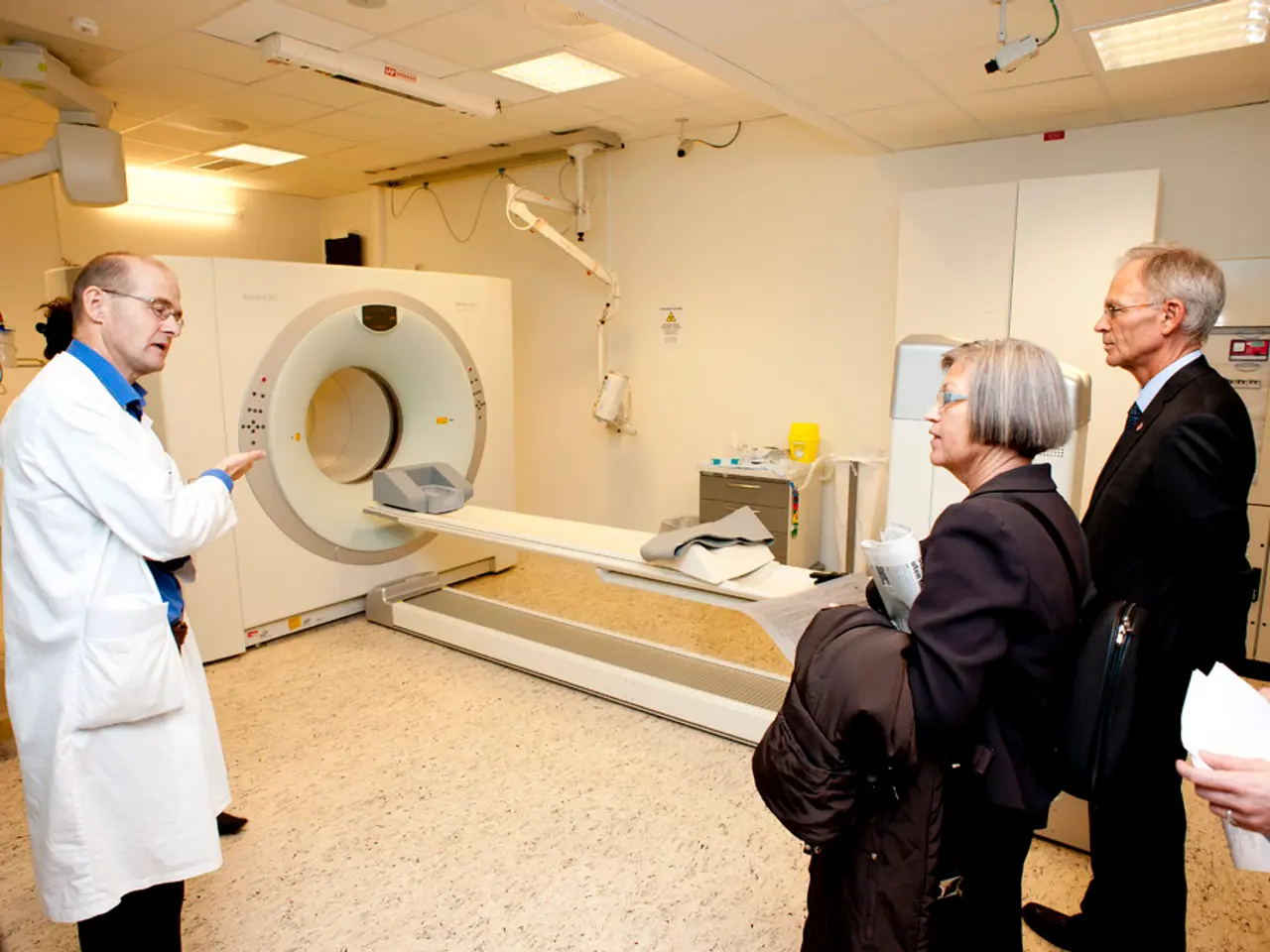AI entrepreneur amasses billions by creating ChatGPT tailored for medical professionals
In the rapidly evolving landscape of healthcare technology, OpenEvidence, a startup founded in 2021, is making waves with its innovative approach to medical research. The company, which recently secured a $210 million Series B funding round, led by Google Ventures and Kleiner Perkins, now values at an impressive $3.5 billion.
OpenEvidence offers an AI-powered search interface that simplifies the process of finding evidence-based insights from millions of peer-reviewed publications. This platform, built on leading medical literature, aims to streamline the accessibility of the latest research for clinicians, bypassing the inefficiencies of traditional databases.
One of the standout features of OpenEvidence is the newly launched DeepConsult, an AI agent designed to assist physicians in conducting advanced medical research. Acting as a "digital twin of a Ph.D.-level researcher," DeepConsult provides comprehensive research reports within hours, enabling doctors to make informed decisions quickly.
The platform has already gained significant traction, with over 10,000 hospitals and medical centers across the United States using OpenEvidence. Its growth has been primarily organic, spreading through word of mouth among doctors. The company has also established strategic content partnerships with major medical publishers, such as the American Medical Association and The New England Journal of Medicine, enhancing the platform's ability to provide high-quality, verified medical evidence.
OpenEvidence's focus on expanding its technology to healthcare, both domestically and internationally, is particularly noteworthy. The company is keen on bringing its innovative solutions to areas where access to quality care is limited, making a significant impact on the global healthcare sector.
Dr. Travis Zack, OpenEvidence's medical director, argues that the startup's AI system reduces the number of errors compared to doctors making judgment calls. This assertion, coupled with the platform's growing popularity, suggests that OpenEvidence is poised to revolutionize the way doctors access and utilise medical research.
As the company continues to grow, it's interesting to consider its potential future. Coatue cofounder Thomas Laffont envisions OpenEvidence someday becoming the hub where various AI-powered tools might converge, further streamlining the healthcare industry. Pairing OpenEvidence's technology with a patient's lab results and data from medical devices like blood glucose monitors presents an opportunity to bring all of that information together, in one place.
With its impressive growth, strategic partnerships, and innovative technology, OpenEvidence is undoubtedly a company to watch in the rapidly evolving healthcare technology sector.
- The entrepreneurial venture, OpenEvidence, whose business revolves around finance of $210 million from Series B funding, is using artificial-intelligence to revolutionize the healthcare industry by offering an AI-powered search interface for medical research.
- The strategic partnerships formed by OpenEvidence with prestigious organizations in the field of entrepreneurship, such as Google Ventures and Kleiner Perkins, are instrumental in enhancing their investments in technology and artificial-intelligence.
- With the aim to make a significant impact on the global healthcare sector, OpenEvidence, the AI-driven startup, is looking to expand its technology, particularly in areas where access to quality care is limited, thus investing in innovative solutions for entrepreneurship in healthcare technology.




